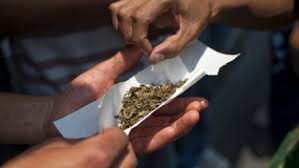By Paul Nicholson
November 7 – The decision by WADA to amend their 2021 World Anti-Doping Agency Code to reduce disciplinary sanctions for athletes who test positive for substances that are unrelated to sports performance will doubtless come as a relief for players, but it is a ruling that could conceivably cover recreational drugs.
Putting the morality of recreational drugs aside, it has been a decision welcomed by FIFPro as a “landmark decision”. Under the new rules guidance, sanctions could be dropped to as little as a months.
“The amendment corrects an injustice that has damaged the lives and livelihoods of a series of professional footballers who have been punished with bans for as long as four years under current anti-doping regulations,” said FIFPro in a press release.
“Some of these footballers have endured lengthy and expensive legal battles in an unsuccessful effort to clear their names in cases which have been doomed from the start because of the rigid nature of the WADA Code over the last two decades.”
FIFPro says it will ask FIFA to make the same changes in football regulations with immediate effect.
FIFPro illustrates the issue by pointing to the case of Peruvian captain Paolo Guerrero who tested positive for a substance that was generally agreed to not be performance-enhancing. FIFPro successfully campaigned alongside the Peruvian federation to have his ban suspended until after the 2018 World Cup.
Theoretically no similar situations will now arise. However, the use of recreational drugs by football’s role models and the prospect of just a month’s ban could present a whole new issue for the monied elite.
Contact the writer of this story at moc.l1745338154labto1745338154ofdlr1745338154owedi1745338154sni@n1745338154osloh1745338154cin.l1745338154uap1745338154

